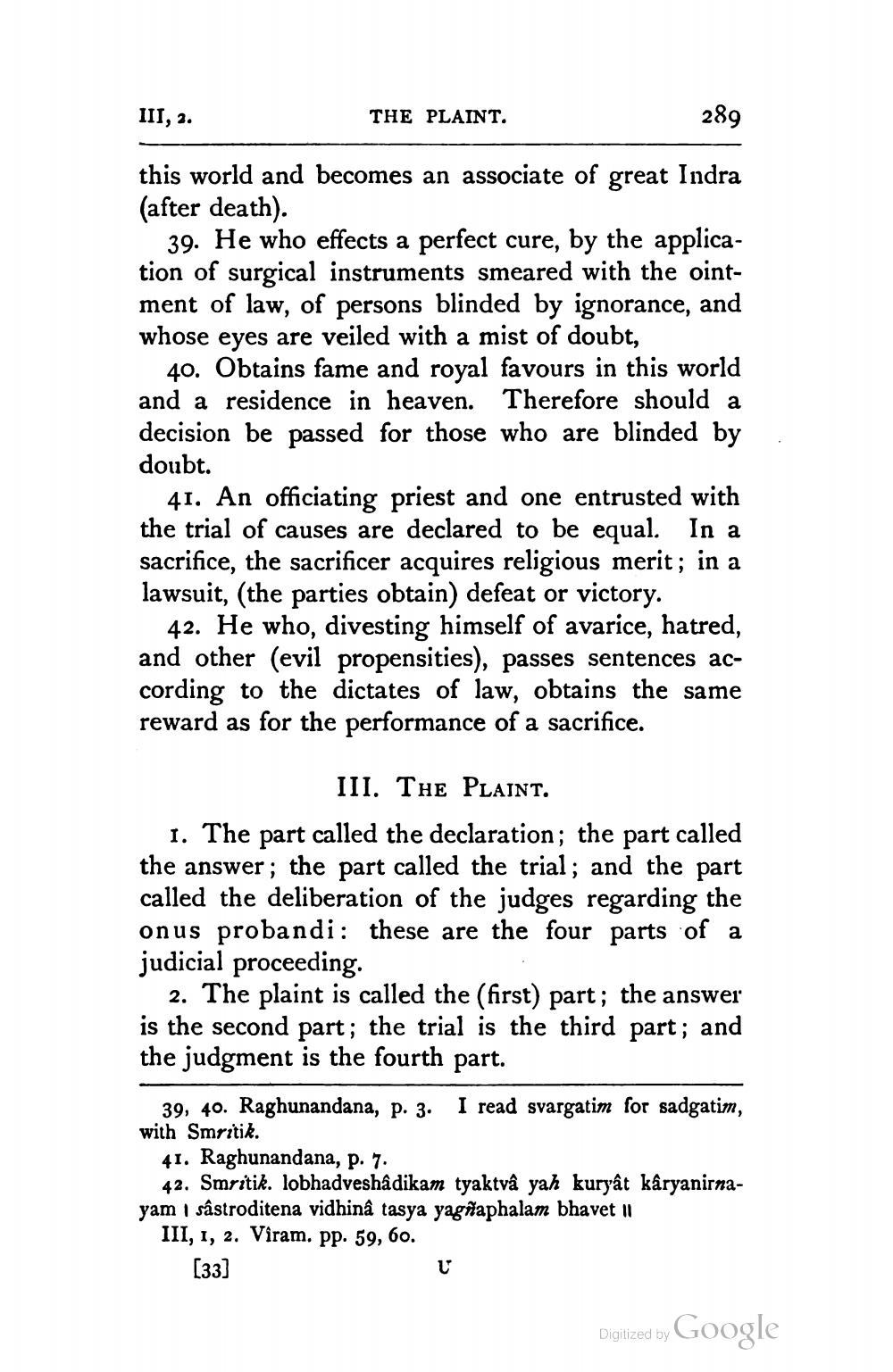________________
III, 2.
THE PLAINT.
289
this world and becomes an associate of great Indra (after death).
39. He who effects a perfect cure, by the application of surgical instruments smeared with the ointment of law, of persons blinded by ignorance, and whose eyes are veiled with a mist of doubt,
40. Obtains fame and royal favours in this world and a residence in heaven. Therefore should a decision be passed for those who are blinded by doubt.
41. An officiating priest and one entrusted with the trial of causes are declared to be equal. In a sacrifice, the sacrificer acquires religious merit; in a lawsuit, (the parties obtain) defeat or victory.
42. He who, divesting himself of avarice, hatred, and other (evil propensities), passes sentences according to the dictates of law, obtains the same reward as for the performance of a sacrifice.
III. The Plaint. 1. The part called the declaration; the part called the answer; the part called the trial; and the part called the deliberation of the judges regarding the onus probandi: these are the four parts of a judicial proceeding.
2. The plaint is called the (first) part; the answer is the second part; the trial is the third part; and the judgment is the fourth part.
39, 40. Raghunandana, p. 3. I read svargatim for sadgatim, with Smritik.
41. Raghunandana, p. 7.
42. Smritik. lobhadveshâdikam tyaktva yah kuryât kâryanirnayam 1 sâstroditena vidhinâ tasya yagnaphalam bhavet 11 III, 1, 2. Viram. pp. 59, 60.
[33]
Digitized by Google




